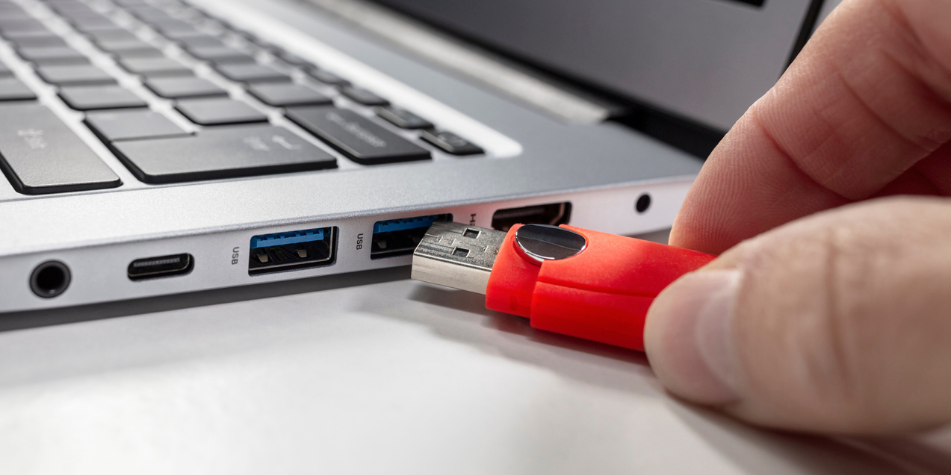The apps that experts recommend deleting from your phone if you have them downloaded: they are malicious

The Integral Ad Science (IAS) Threat Lab has raised the alarm about a vast and sophisticated fraud network using fake apps and malicious code designed to access sensitive user information.
According to the firm's report, some of these apps have managed to bypass the filters of platforms like the App Store and Google Play, creating a sense of security and trust among users. However, the reality is different. Their risk is so silent that once installed, they can monitor people's digital activities without being noticed.
Due to its silent and mutable operation, this modality has been dubbed the "Kaleidoscope" for its ability to constantly modify its structure and make it difficult for security systems to detect.
Under this false sense of security, users hand over password information, location data, private messages , or device files that cybercriminals use to commit fraud.

Apps were grouped under the so-called Kaleidoscope category due to their constant evolution. Photo: iStock
Below are some of the fraudulent apps that were detected by Integral Ad Science:
- chemistry.chemistry.chemistry
- com.carromboard.friends.game
- com.citiesquiz.nearme.gamecenter
- com.herocraft.game.birdsonwire.freemium
- com.herocraft.game.dragon_and_dracula.free
- com.herocraft.game.free.mig29
- com.herocraft.game.freemium.catchthecandy
- com.herocraft.game.lite.st_ussr_usa
- com.herocraft.game.raceillegal
- com.herocraft.game.treasuresofthedeep
- com.herocraft.game.yumsters.free
- com.JDM4iKGames.Daily86
- com.onetouch.connect
- com.pro.drag.racing.burnout
- com.secondgames.dream.football.soccer.league
- com.shake.luxury.prado.car.parking.simulator
- com.tedrasoft.enigmas
- com.tuneonn.bhoot
- com.tuneonn.lovehindi
- com.tutu.robotwarrior
- com.zddapps.beautytips
- com.zddapps.totke
- com.zombiehunter.offline.games.fps.shooter
- constitution.indian.constitution
- environment.ecology.environment
- formula.math.formulas
- indian.geography.geography
- physics.physics.physics
- com.temperament.nearme.gamecenter
- math.Mathematics.exam.math
- english.idioms.english.phrases
- history.indian.history.hindi
- com.businessquo.nearme.gamecenter
- connect.dots
- english.preposition.english.preposition
- english.conversation.english.conversation
- science.ncert.science
- com.herocraft.game.free.medieval
- biology.biology.biology
- com.herocraft.game.ww2
Users who have any of these applications on their devices should remove them immediately. It's also recommended to review the permissions granted to installed apps and disable those that allow unjustified access to sensitive data. Keeping the operating system and applications up to date helps reduce exposure to these types of threats.
Programmer discovers massive USB flash drive scam and releases free tool to detect it In September 2023, a programmer discovered a scam after purchasing 12 USB flash drives from unknown brands on Amazon. Despite all of them claiming high storage capacities , none of them lived up to their promise . The operating system recognized the space as available, but when trying to save data, it wasn't stored correctly. The cause: a firmware modification that falsified the capacity information.
The discovery occurred while testing with SpinRite, a specialized disk diagnostic tool. During the process, one of the testers noticed that one of the drives appeared to be in good condition, but failed when writing actual data. This anomaly led to further investigation.

This is one of the most traditional ways to transport data. Photo: iStock
To confirm the problem, the team acquired 12 additional drives with similar characteristics. After analyzing them, they found that they all exhibited the same pattern: they had been manipulated to display larger storage capacities than they actually did. Thus, the device theoretically allowed data to be stored, but overwrote or corrupted the data once its true capacity was exceeded.
ValiDrive: the tool to detect tampered memory cards In response to this scam, developers created ValiDrive, a free tool that helps verify the authenticity of advertised storage on USB devices. The program runs read and write tests distributed across 576 areas of the device, checking whether it's actually possible to use all of the declared memory.
Using the tool is simple: once the USB is connected to the computer, the user launches ValiDrive, selects the device, and a visual analysis is generated. Functional areas appear in green, while defective or altered areas are displayed in red, making it easy to detect if the device has been tampered with.
Although tools like H2testw already exist, ValiDrive has gained visibility thanks to its simpler interface and its effectiveness in identifying storage fraud.
Risks of purchasing low-cost storage devices This case highlights a fraudulent practice that persists on e-commerce platforms like Amazon. Although the models involved were removed following the developer's complaint, other similar listings remain active. For this reason, caution is recommended when purchasing USB flash drives: avoid products with considerably low prices and prefer recognized brands.
Tools like ValiDrive are a useful resource for confirming whether a storage device is reliable and avoiding data or money loss.
Regarding the use of USB ports, experts also warn about another common risk: using the same charger for different devices. Although many devices today use USB-C connectors, not all are compatible with the same type of charging.

This is one of the most traditional ways to transport data. Photo: iStock
The European Union, for example, has pushed for USB-C standardization starting in 2024 to reduce electronic waste. However, this standard doesn't guarantee that any charger will work safely with any device.
According to experts, "using an inappropriate charger can cause overheating, failure due to voltage fluctuations, or irreversible damage to the battery," as each device uses a specific charging protocol.
Therefore, it is recommended to check the charger's compatibility with the device and avoid using generic or low-quality chargers.
More news in EL TIEMPO *This content was rewritten with the assistance of artificial intelligence, based on information published by Portafolio and EL TIEMPO, and reviewed by the journalist and an editor.
eltiempo





